Contents
Global Ecosystem Partner Interview 02 :One&Co
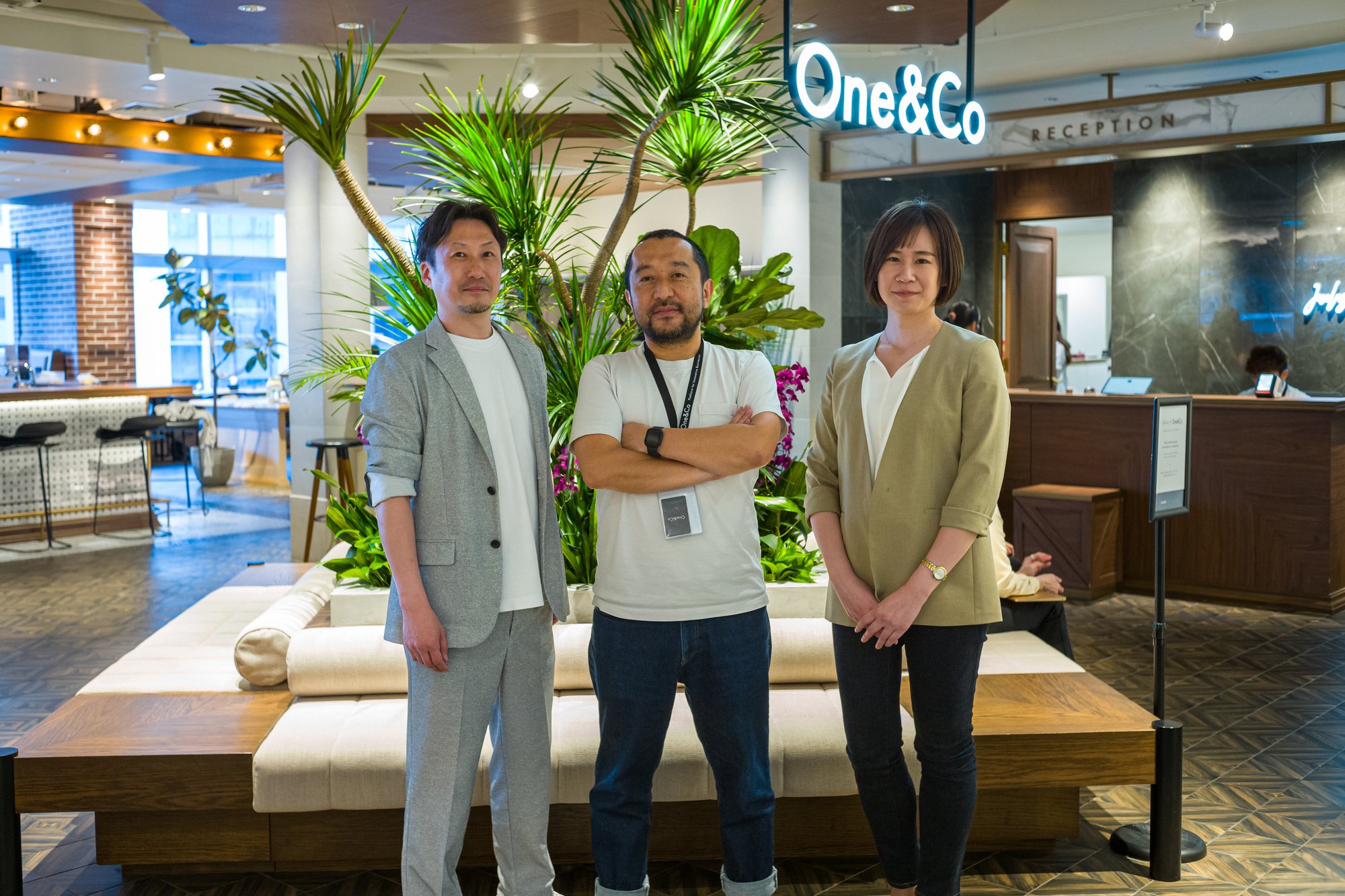
The illusion that "we can win because we are a Japanese company
One&Co's Overseas Strategy
When foreign companies expand into the Japanese market, we receive many consultations regarding pre-marketing issues such as "potential locations for offices," "legal and regulatory matters," and "attracting talented human resources. This is also the case for Japanese companies entering overseas markets. Hybrid Marketing has established a "global ecosystem" that provides comprehensive support for these issues, which cannot be easily solved, by utilizing a network of highly specialized partner companies and experts.
One&Co, with offices in Singapore and Taiwan, is a platform that connects various companies, governments, and startups to induce innovation, and is one of Hybrid Marketing's trusted partners. We visited Takahiko Ito, general manager and PR strategist at the facility, and spoke with him about the business and how to prepare for doing business in Southeast Asia.
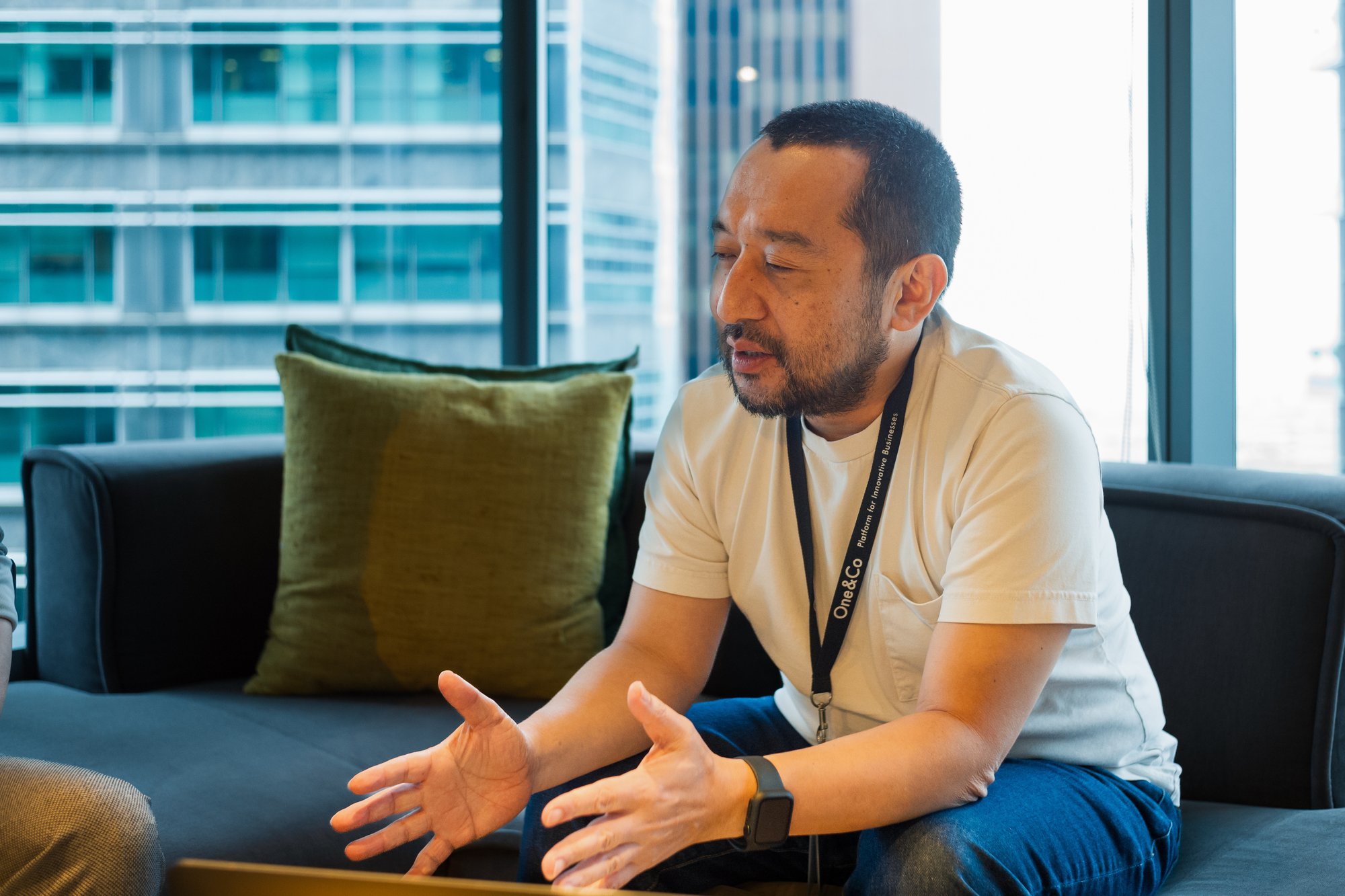
Companies of various nationalities connect to create the seeds of new business
Takahiko Ito
General Manager, One&Co Singapore, PR Strategist
─ Please start by telling us about One&Co.
Takahiko Ito (Ito): We were established in August 2019, and it has been almost 5 years. Located in the heart of Singapore's business district, we have just under 300 members, 80% of which are Japanese companies and the remaining 20% are local companies and companies of other nationalities.
─ Does it play a role as a bridge between local companies that there are many Japanese-affiliated companies in the area?
Ito: Yes. We often introduce Southeast Asian companies interested in Japan. Also, for companies that have just arrived in Singapore from Japan, One&Co can connect them with companies that have similar challenges and stories if they consult with us. They will be able to share information with you on how to develop and who to approach.
─ What exactly does One&Co do?
Ito: We are all about "turning minus one into zero. We want Japanese companies to realize that when they start a business in Singapore, they are not starting from zero, but from minus. It is important to change their mindset until they are ready to talk business on the same footing as local companies.
─ What kind of work do you do, Mr. Ito?
Ito: Recently, I have been describing my title as "orchestrator. In an orchestra, the first thing you do is to match the sound, and the business is the same. Harmony cannot be created if the various instrumentalists play their own notes. That dissonance is interesting (laughs), but when the conductor takes the rhythm, a beautiful harmony is gradually created.
Our job is to use One&Co's connections, knowledge, and resources to create an environment where members can communicate with each other and create beautiful harmonies. We do not seek compensation for this; our joy is in the next business opportunity that arises.
What is important is a change in the mindset of the Japanese people.
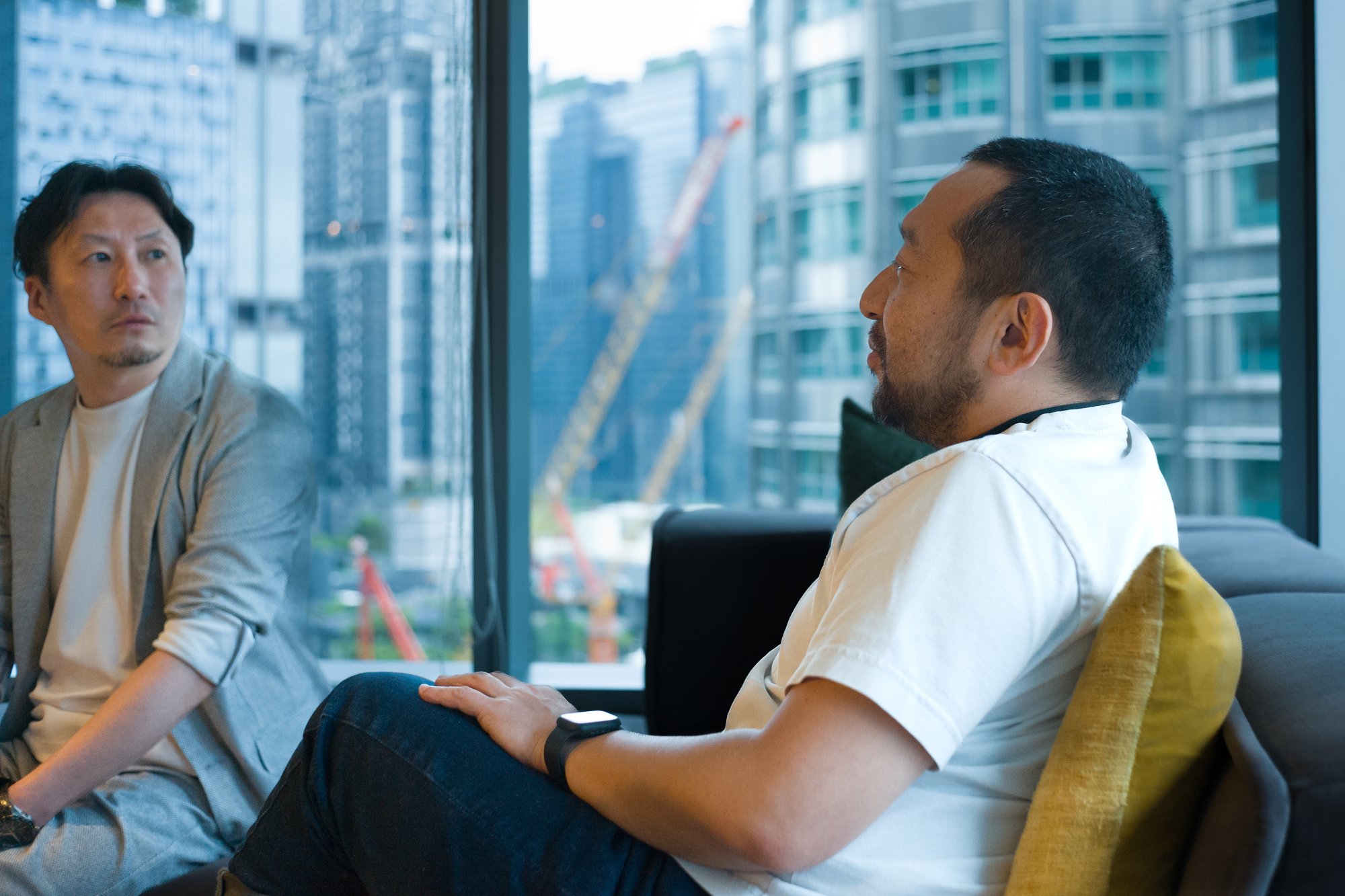
─ When I mentor young startups in Japan, I have the impression that more and more of them are pursuing their business not only in the Japanese market, but also with a global perspective from the beginning.
Ito: I would like to support such people as much as I can, but to put it harshly, unless they correctly understand the situation in Japan and the rest of the world, they will lose 99.9% of the time. Unless you are doing research in English or Chinese on a regular basis, consulting local information sources, or connecting with global businesses on LinkedIn, etc., issues and ideas based on information obtained in Japan will not work in the world.
As for the funding team, the CEO can be Japanese, but the CTO should be a local person. In Singapore, there are many multinational startups with a local founder, a co-founder from Vietnam, and a CTO from the UK.
The idea of developing a business optimized in Japan as it is in other countries will not work. It will be difficult unless the company has the potential to be globally viable from the start and is willing to first establish a firm foothold in Japan before expanding overseas. When marketing, it is also important to have personnel who can understand local pain points.
─ So the success experience in Japan does not work. Please tell us about the Japanese community in Singapore.
Ito: Many people posted from Japan do not know anyone locally, and even if they are active in the Japanese media, they are often unknown here, so it is difficult to make appointments easily and even to meet local people. The head office in Japan tells you to expand your network locally, but in reality, that is not an easy task. Therefore, it is important for Japanese people to cooperate with each other in a positive way.
Some people may take the term "Japanese village" negatively, but why don't you think of it in the same nuance as overseas Chinese and Indian Indians? Overseas Chinese and Indian Qiao have already established a solid foundation and have entered various industries. Because of their well-established communities, if they have any problems, they can be immediately introduced to people and business opportunities are created.
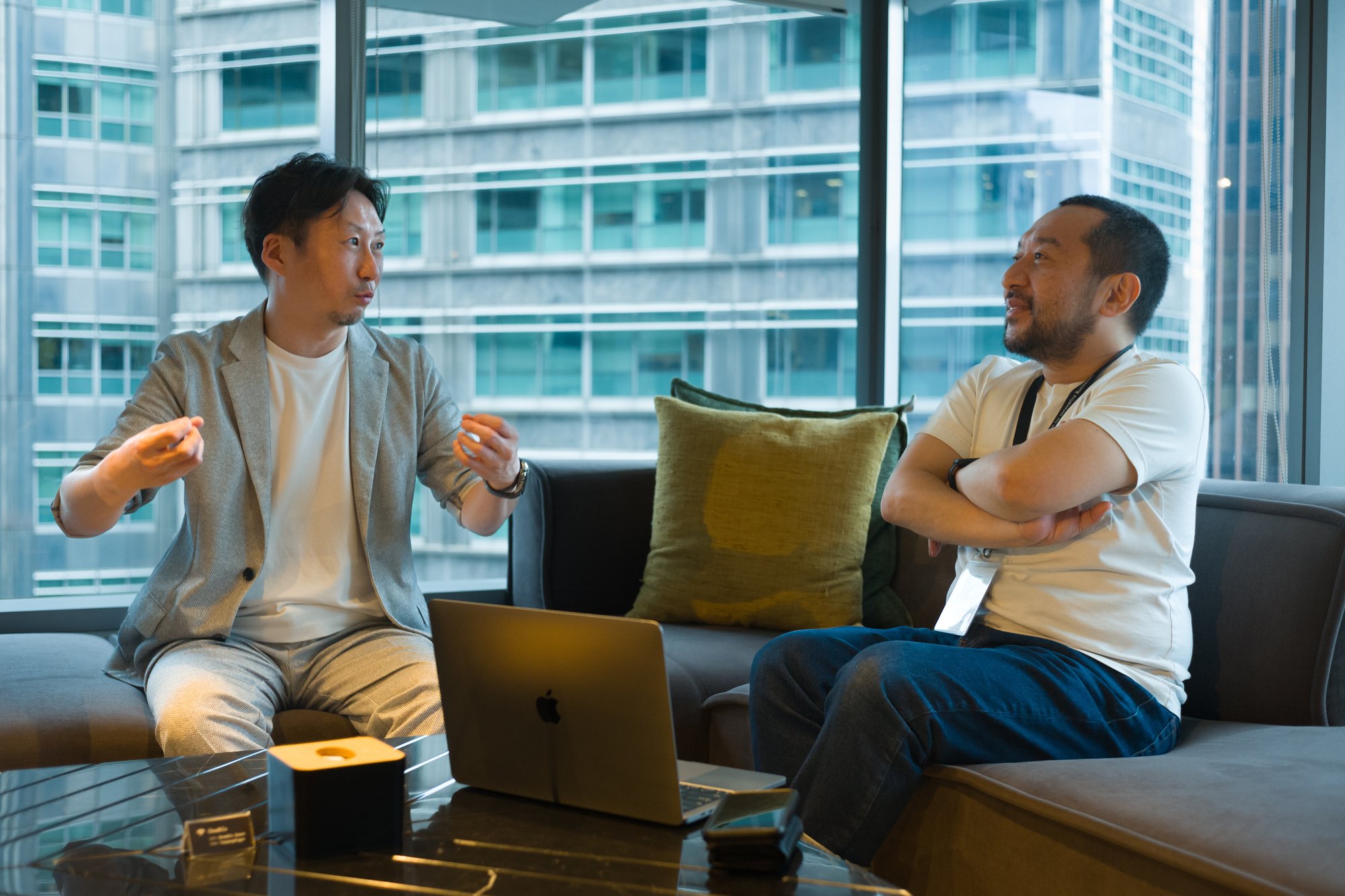
New value that can be created because of chaos
─One&Co's website says that it "triggers innovation and even supports the creation of social impact.
Ito: "What do you mean by innovation?" What would you answer? We believe that innovation is to "out-do". In other words, to "invent a new meaning. Overtaking" will eventually be overtaken, but "outrunning" is not easily imitated.
Japanese companies tend to treat their business partners as suppliers. However, by meeting in a non-sequential manner, you can become a partner rather than a subcontractor. One&Co brings together people from a wide variety of industries, allowing you to connect with people you never thought you would meet.
─You need to change the way of thinking that you have taken for granted in Japan, don't you?
Ito: The business styles of Japan, Southeast Asia, and the rest of the world can be compared to a ladder and a jungle gym. In Japan, there is an image that everyone, including investors and shareholders, work together to support the ladder and advance the business. Only a few people can reach the goal, and sometimes the ladder falls over because it cannot be supported at the bottom. If the goal is wrong, one has to move left and right while supporting the ladder.
On the other hand, a jungle gym can be climbed from anywhere. You might fall and hurt yourself, but you can catch yourself on a stick somewhere and climb back up again. Looking to the side, there are communities of overseas Chinese and Indo-Chinese who support each other. When you reach the top, it is easy to move sideways. I think I am stronger in this kind of world.
─ Do you have a message for Japanese companies considering expansion into Singapore and other Southeast Asian markets?
Ito: There are limits to what you can find on the Internet. For example, if you want to expand from Japan to Mongolia, even if you search for Mongolia in Japanese, the information is limited, and in the end, you will not know where you should set up your base of operations. The same is true in Singapore and Southeast Asia. There are many things you cannot understand unless you come to Mongolia. In other words, if you come there and start your activities, you will have opportunities.
To this end, it is important to have a reliable local partner or network. We at One&Co are here to support you in areas that cannot be covered by hybrid marketing alone. We may sound harsh, but we are here to help you, so please feel free to contact us.
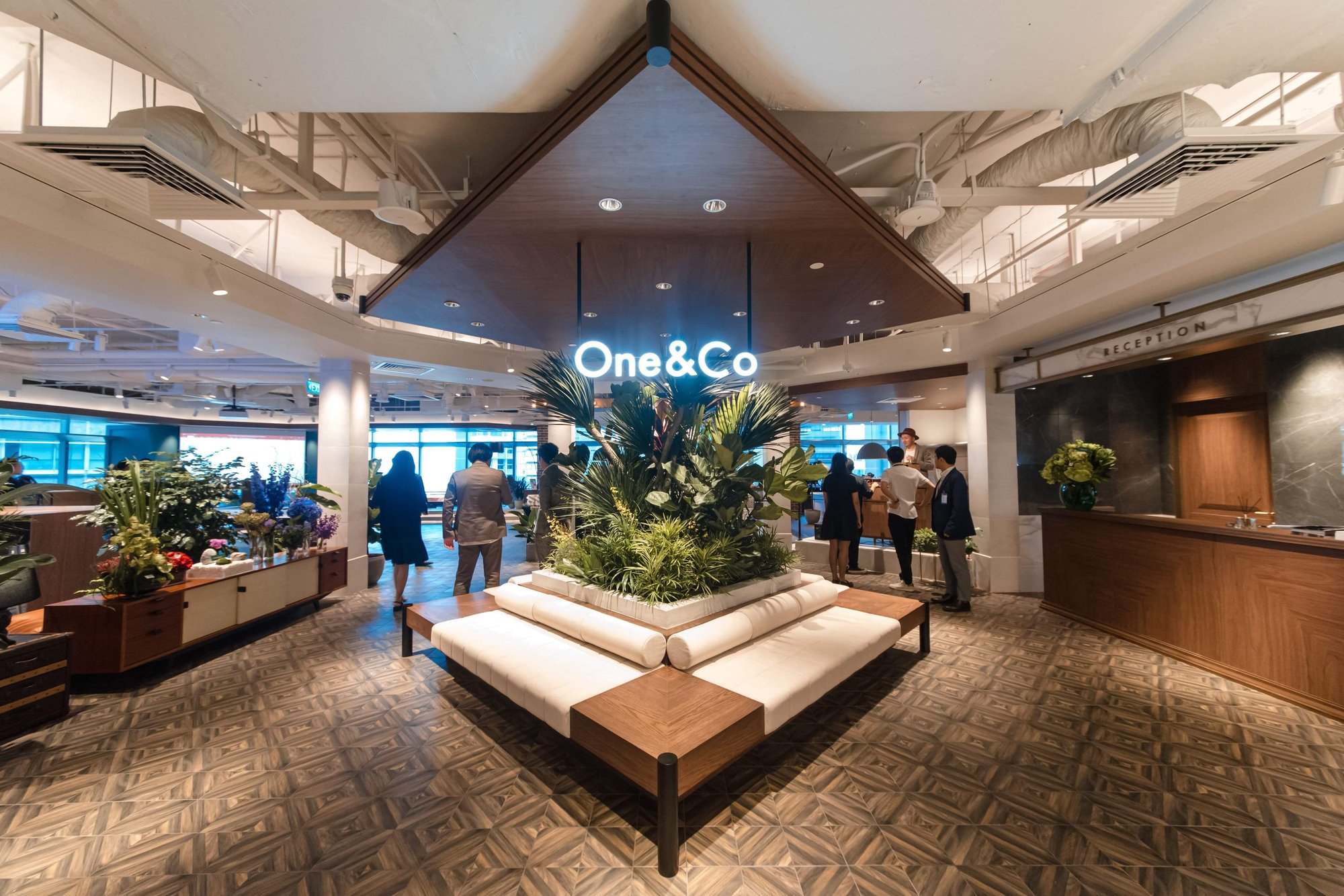
One&Co
Co-working space in Singapore, CBD area. Community conductors are stationed and events are held on a regular basis to connect companies' businesses and support networking and community participation. They also provide support for setting up a company in Singapore, startup companies, and other services to connect businesses in Japan and Singapore.

